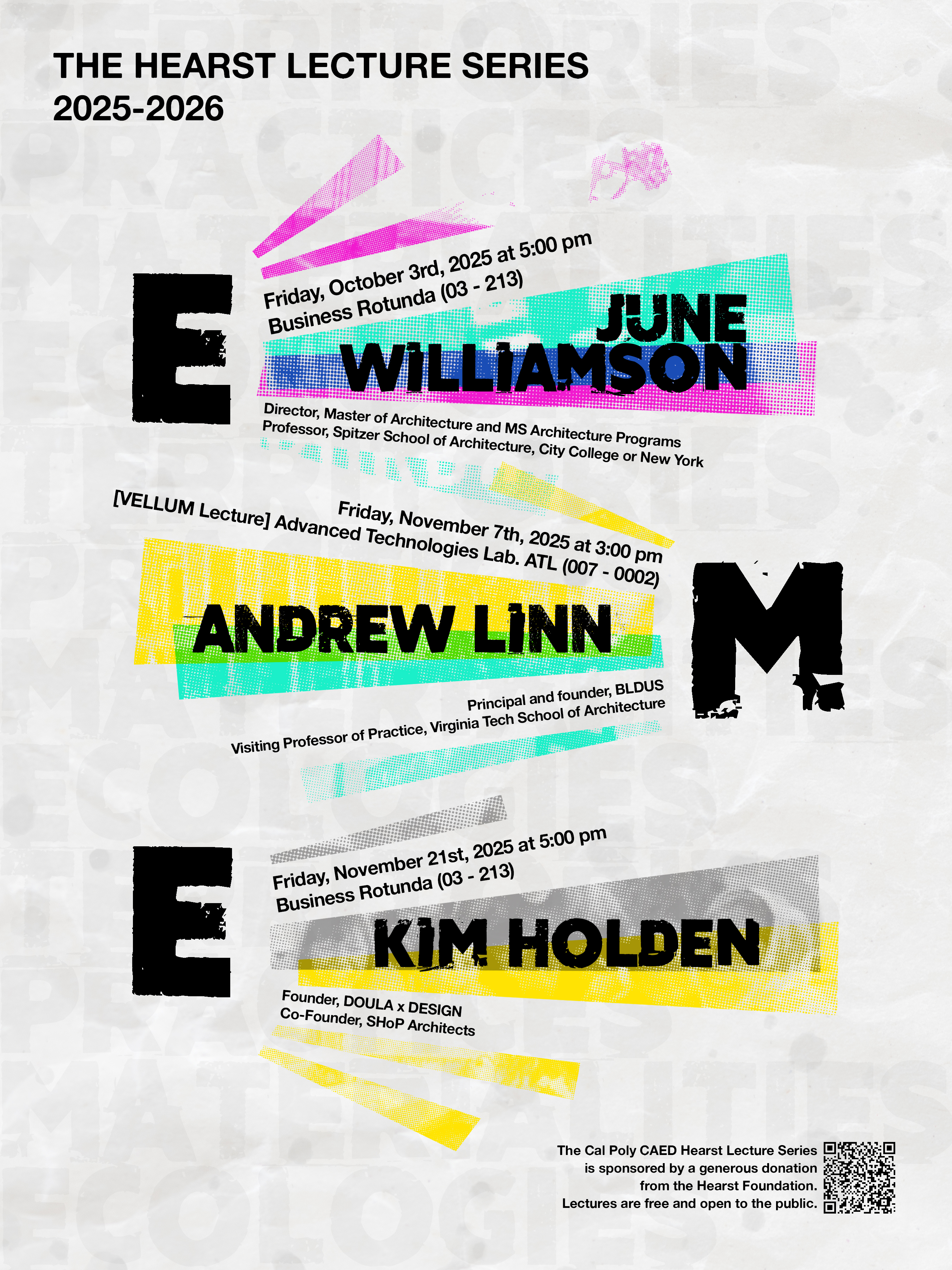History of the College: Seven Decades of Success
From Post-War Origins to 21st Century Leader
The College of Architecture and Environmental Design (CAED) was created at Cal Poly, San Luis Obispo, in 1946-47 to help meet the growing state of California’s post-war needs to prepare more of its best and brightest to enter the built environment professions. It has retained its original commitment to a hands-on learning education rooted in synthesizing the art and the craft of the built environment professions.
For over 75 years, from its first class of 8 to its current population of over 1,700 students, the CAED programs and our alumni have significantly influenced the planning, design and construction professions. Students have opportunities to study abroad, and our graduates increasingly work in firms and on projects on all continents.
Cal Poly is the only predominantly technical university within the 23-campus California State University system and enjoys a national reputation. U.S. News & World Report has consistently rated Cal Poly as the best public university, broadly an undergraduate university in the West.
Our Defining Elements
As a fully professional college within a highly regarded polytechnic university, the CAED is committed to project-based learning and the studio format as a central feature of all five majors. All five also embrace an educational progression through increasingly complex individual and team-based work and active engagement with practitioners and real communities. Skills, knowledge, and perspectives gained through seminars, lectures, tutorials, field trips, and specialized instructional laboratories are fully integrated.
Additionally, as part of a rich tradition and graduation requirement for Cal Poly, all five majors feature a culminating senior project requirement, undertaken in a variety of forms ranging from individual or group independent study to rigorous theses organized under these matched to faculty with unique expertise in the thesis subjects.
Our location in California, the largest and most diverse state, allows us to expose our students to a wide array of issues, trends, models, and innovators. California serves as a springboard for international perspectives and a window into emerging trends and technologies, as much of the current global practice in our professions is undertaken by firms active in California and the western US.
There are many ways in which we strive to bring the world to our students and immerse our students in the world. In partnership with local agencies and supporters throughout California and the West, CAED faculty and students have a long-established record of undertaking real community-based projects as part of their studio learning, from as close as our neighborhood to as far away as Montana, Tanzania, and Honduras. A strong tradition of students entering regional and national competitions is embedded in all majors, yielding a long list of honors and awards. Dozens of visiting lecturers and practitioner faculty, international faculty exchanges, and a handsomely endowed Hearst Lecture series bring creative and dynamic outsiders to the campus every quarter to augment our excellent full-time faculty.
Off-campus programs in California and around the world, extended field trips, and special student tours also contribute to our investment in supporting a connection between Cal Poly and the world.
The programs' high educational benefit depends on a low student-to-professor ratio, high-quality technological and support, and well-equipped instructional spaces, for which the college is continually investing.
Our Unique Features
The programs also benefit from some unique facilities that augment classroom learning, including:
- Poly Canyon: 12-acre outdoor experimental construction laboratory.
- Neel Resource Center: Our resource center is for printed and digital resources and has a unique section for building materials.
- Photo Lab: Darkroom, digital, and video production support with a full-time professional staff, assistants, and a photographic presentation facility.
- Specialized computing facilities; computer rendering and graphics laboratory; materials testing laboratories; and construction methods laboratory.
- Support Shop: Indoor and outdoor space with equipment, tools, and supplies for student projects using wood, metals, plastics, concrete, and polymers.
- Solar Decathlon: National award-winning 1,000 s.f. experimental solar home designed and constructed by a multi-disciplinary team of faculty and students.
Serving the Next Generations
Admission to the programs is highly competitive, and student GPAs and test scores are comparable to those of the top University of California schools and leading national private and public universities.
The University and the CAED are committed to diverse people and perspectives to build a solid and effective learning environment and prepare students for various professional practice opportunities. The faculty represents a compelling mix of significant professional practice and research experience. They are dedicated to preparing future leaders who are responsible for improving the built environment.



